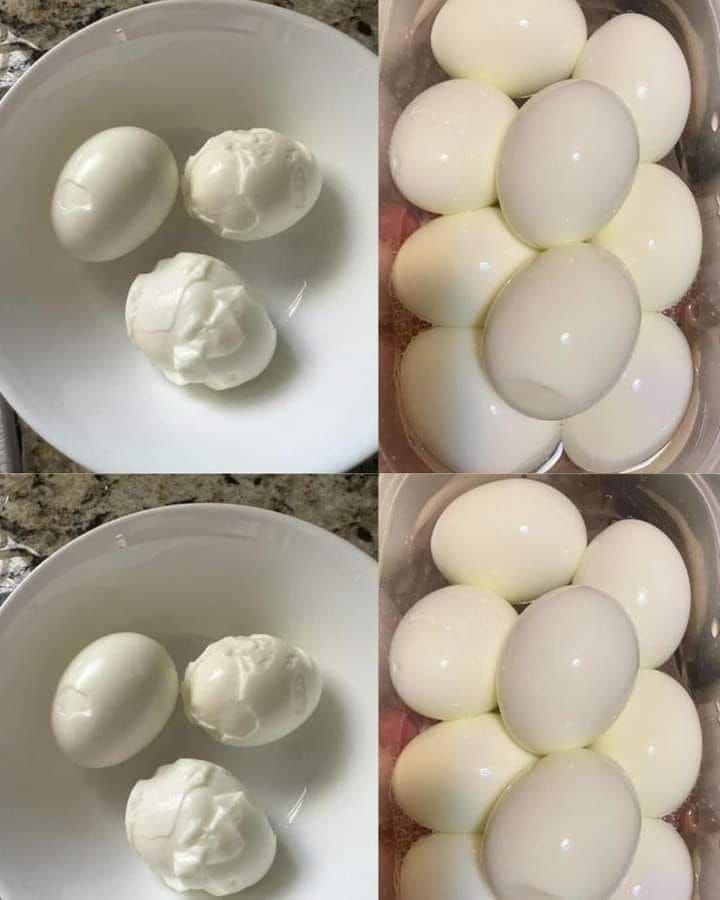3- Cook quickly and let cool:
Boil eggs: Place the eggs in a pot of cold water, ensuring they are covered by about 1 inch of water. Bring the water to a boil over medium-high heat.
Turn off the stove and cover: Once the water boils, turn off the stove and cover the pot with a lid. Let the eggs sit in the hot water for 10–12 minutes, depending on your desired doneness.
Place in an ice bath: After the eggs are cooked, use a slotted spoon to transfer them to a bowl of ice water. Let the eggs sit in the ice bath for at least 5 minutes. The cold water stops the cooking process and also helps separate the egg whites from the membranes.
4. Gently crack and roll: Once the eggs have cooled, tap them lightly on a hard surface to create cracks in the shell. Roll the egg between your hands to loosen the shell. Then peel from the wider end, where there is often an air pocket, making it easier to get under the membrane.
5. Peel under running water: If there are stubborn pieces of shell, peeling the egg under running water can help. The water flows between the egg and the shell, washing away small pieces of shell and making peeling easier.
Why this method works
The key to easily peeling hard-boiled eggs lies in a combination of pH adjustment, rapid cooling, and gentle handling. A pH adjustment with baking soda or vinegar reduces the bond between the egg white and the shell, while rapid cooling in an ice bath tightens the shell, making it easier to separate from the egg.
With these tips, peeling hard-boiled eggs will be easy, and you’ll get smooth, beautiful eggs like the one in the picture above! Whether you use them in deviled eggs, salads, or simply as a snack—this trick will save you time and effort in the kitchen.
